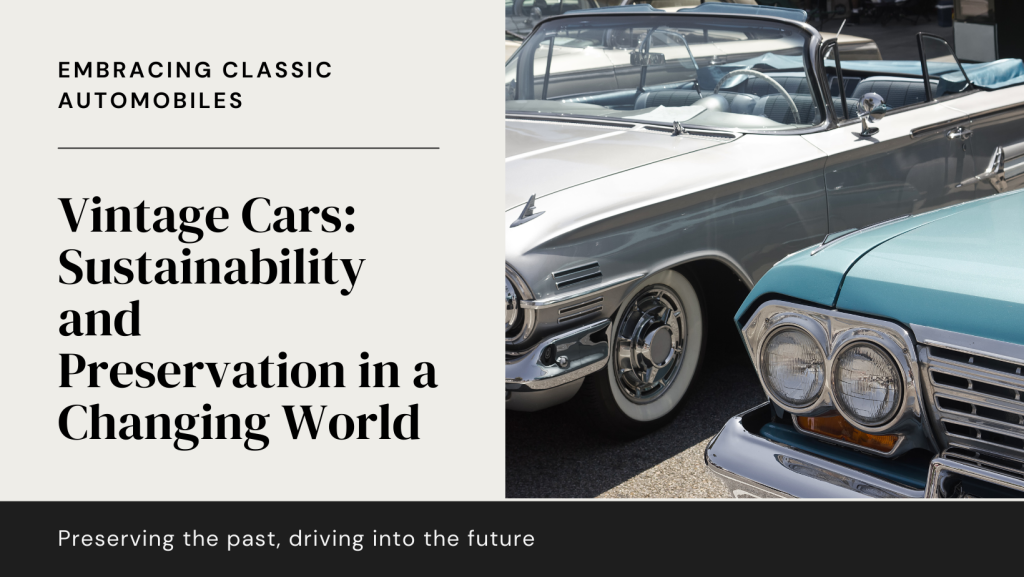As the automotive industry embraces sustainability and innovation, the future of vintage cars faces evolving challenges and opportunities. Enthusiasts and collectors are exploring ways to preserve and enjoy classic vehicles while addressing environmental concerns and adapting to technological advancements.
Environmental Considerations: With growing awareness of environmental impact, vintage car enthusiasts are increasingly mindful of sustainability in their hobby. Restorations and modifications may focus on enhancing fuel efficiency, reducing emissions, and adopting eco-friendly practices such as using recycled materials and sustainable restoration techniques. Some enthusiasts also explore electric vehicle conversions for vintage cars, integrating modern electric drivetrains while preserving the vehicle’s original aesthetics and character.
Digital Preservation and Documentation: In the digital age, preserving the history and heritage of vintage cars is crucial. Enthusiasts document restoration processes, historical research, and technical specifications through digital platforms, blogs, and online communities. Digital archives and virtual museums provide accessible resources for future generations to learn about classic cars’ cultural significance and technological evolution.
Educational Initiatives: Promoting knowledge and appreciation of vintage cars among younger generations is essential for preserving automotive heritage. Educational programs, workshops, and events introduce students and enthusiasts to the craftsmanship, engineering principles, and historical context of classic vehicles. Hands-on restoration projects and mentorship opportunities foster skills in automotive preservation and inspire future enthusiasts to engage with vintage car culture.
Adaptation to Technological Advancements: Embracing technological advancements while preserving vintage charm is a balancing act for enthusiasts. Integrating modern safety features, fuel-efficient drivetrains, and digital connectivity enhances usability and sustainability without compromising the vehicle’s historical integrity. Innovations in automotive restoration, such as 3D printing for rare parts and sustainable restoration materials, support preservation efforts while reducing environmental impact.
Cultural and Historical Preservation: Vintage cars hold cultural significance as symbols of automotive design, innovation, and societal trends of their respective eras. Preserving original paint colors, upholstery materials, and mechanical components maintains historical authenticity and enhances the vehicle’s value as a cultural artifact. Participation in vintage car rallies, exhibitions, and heritage tours celebrates automotive history and fosters community among enthusiasts worldwide.
In conclusion, the future of vintage cars lies in embracing sustainability, preserving cultural heritage, adapting to technological advancements, and inspiring future generations of enthusiasts. By integrating modern practices with reverence for history and craftsmanship, vintage car enthusiasts contribute to the longevity and cultural relevance of classic vehicles in a rapidly changing world.

